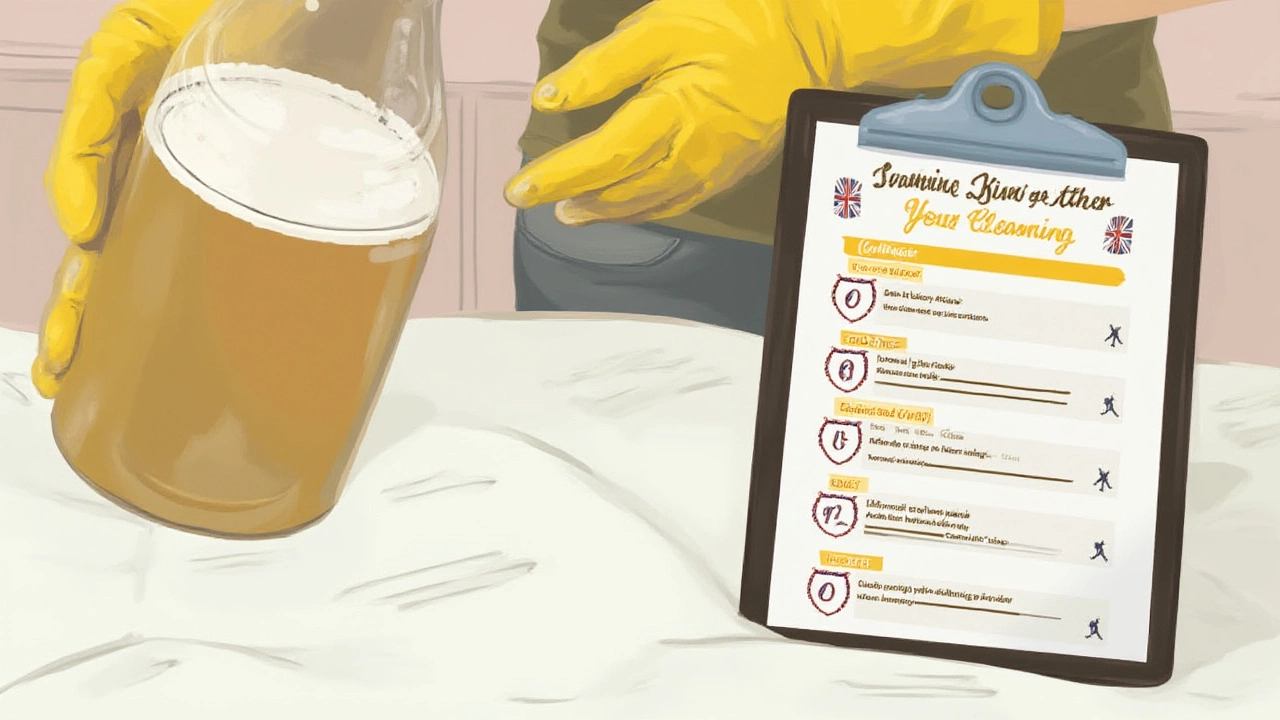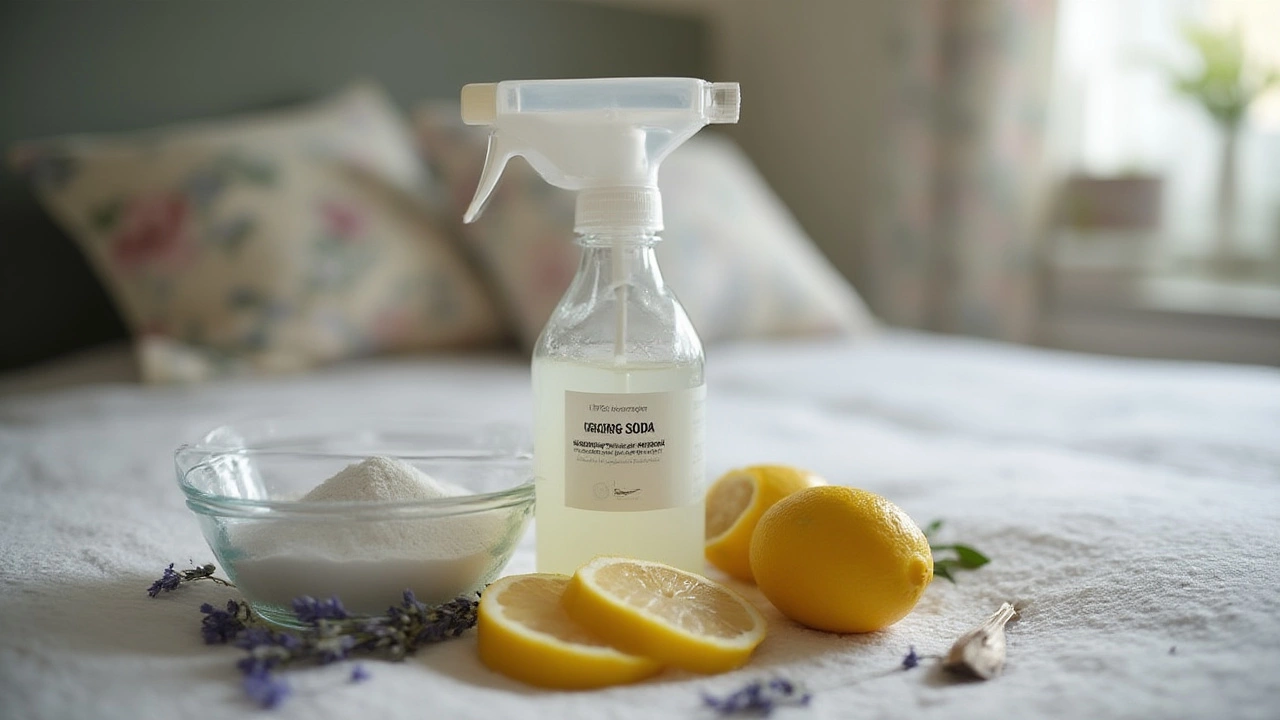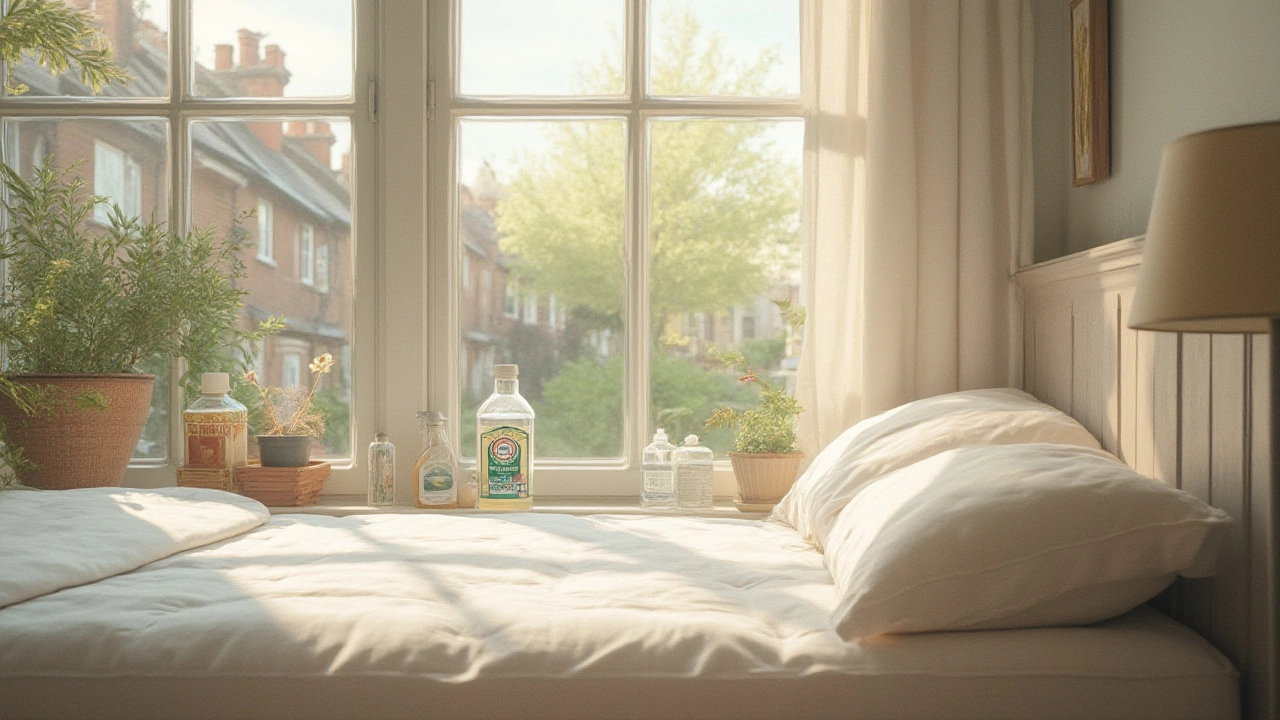Look, there’s nothing glamorous about cleaning a mattress. But waking up to mysterious stains, stubborn smells, and who-knows-what lurking beneath your sheets is downright gross. You’ve seen all those hacks flying around social media, right? One name keeps popping up, almost like a magic bullet for every household disaster: vinegar. But is reaching for that bottle of vinegar actually a smart move when you want a clean, fresh mattress? Or is it just another myth waiting to waste your time—and make your bedroom smell like a salad?
Why Do People Use Vinegar on Mattresses?
Vinegar—specifically, regular old white distilled vinegar—has been living in our kitchens and cleaning cabinets for decades. People love it because it’s cheap, easy to find, and supposedly takes down sticky spots and bad smells like a champ. It’s got acetic acid, which attacks bacteria, mold, and even some viruses. This same acid is also what makes vinegar such a sharp, nose-tingling liquid.
When it comes to mattresses, people usually turn to vinegar hoping it’ll do two big jobs: remove stains (like those mysterious yellow ones, or maybe some spilled coffee) and kill the germs that mess with your allergies or asthma. The logic? If it can clean a grungy kitchen counter, surely it can freshen up your bed.
But here’s what’s interesting: mattresses are not the same as a glass surface or a sticky stovetop. These things suck up liquids deep into their foam and fiber layers, where it’s suddenly way harder to clean and dry. This is where the vinegar debate really gets messy: it might seem like a quick fix, but there’s more to the story—and more risks to your bed—than most folks realize.
Some people think vinegar works on literally every type of mattress: spring, memory foam, latex, hybrid, you name it. In reality, memory foam and latex especially aren’t big fans of liquid. They trap moisture, which can lead to funny smells or even mold. No one wants that greeting them at bedtime.
If you roam through cleaning forums or peek at product labels, you’ll notice mattress manufacturers rarely recommend soaking your mattress with anything, much less vinegar. Many newer mattresses have treatments to fight allergens or bacteria already, and extra moisture can mess that right up. So while vinegar sounds like a “natural” miracle, it’s not as universal as people want it to be.
One tip: if you’re curious or still tempted, always spot-test a hidden patch. That way, you know what’ll happen before you spray down your entire mattress. You might find out that your mattress does not handle acids—or moisture—very kindly.
What Happens When You Actually Use Vinegar?
If you’ve ever tipped a bottle of vinegar on a stubborn stain, you know the story. The sharp smell hits first. A little scrubbing and maybe the stain lightens. But then, the hard part comes: getting that mattress to dry before it starts to smell musty. Mattresses are spongy. Liquid goes in, but it takes ages to get out.
So, does vinegar really kill mattress odors? Sometimes. In small spots with surface-level funk (think: a pet accident that just happened), vinegar’s acid can break down odor molecules and help fight off some lingering smells. But if the stain or smell has already sunk into the core, vinegar is rarely enough. It covers more than it removes. After the slight tang of vinegar fades, that stale, unidentifiable mattress odor often creeps back.
How about stains? Vinegar can fade light, fresh stains, especially if you act fast. But for set-in, old stains like sweat, urine, or food, vinegar on its own struggles. Sometimes, it’ll lighten the outline but leave a funky ring or discoloration—a look that screams “I tried a hack and regretted it.”
There’s more. Using too much vinegar (or letting it soak in) can actually trap more moisture, especially inside memory foam or dense mattress layers. That creates conditions for bacteria, not against them. The worst cases? Mold, mildew, and a mattress you probably need to toss. One real-world tip: always press as much liquid back out as possible with towels—don’t just let it air dry—and crank fans, open windows, or use a hairdryer on the cool setting.
If you’re chasing dust mites or random germs, vinegar is only a partial solution. According to a 2023 study in the Journal of Environmental Health Science, vinegar at standard store concentrations (around 5% acetic acid) kills about 80% of common household bacteria, but it’s not a match for every bug out there. Sanitizing a mattress, especially after illness, usually needs something stronger or commercial-grade.
| Action | Success Rate with Vinegar | Potential Issues |
|---|---|---|
| Removing Odors | Moderate | Lingering vinegar smell, doesn't always remove deep odors |
| Lifting Stains | Low-Moderate | Works best on fresh stains, may leave watermarks or rings |
| Disinfecting | Low | Kills some bacteria, but not viruses or all allergens |
Bottom line? Vinegar isn’t a miracle mattress cure. It’s only good for quick, surface cleanups—if you follow up with drying and watch for damage. If your mattress tag says “no liquids”? Listen to it.

Smart Ways to Clean Mattress Stains and Odors (Besides Just Vinegar)
If vinegar isn’t the superhero you hoped, what does work? Turns out, the best game plan for a clean mattress mixes a little bit of science, some elbow grease, and a few simple products you probably already have. Baking soda, for instance, is practically magic against odors and easy on foam or fabric. It draws out moisture and smells without soaking your mattress.
- Baking soda refresh: Sprinkle a heavy layer across your bare mattress, let sit for 1–2 hours, then vacuum it away. You’ll be surprised by the gray dust in your vacuum bin. That’s not just dirt—that’s dried sweat, oils, and dead skin.
- For stains, start by blotting—not rubbing—fresh spots with a dry towel. Next, try a mix of mild dish soap and water. Dab gently and absorb excess liquid right back up.
- When facing a stubborn fresh stain (like urine), blot, then spray a solution of half water, half vinegar, and a tiny amount of dish soap. Let it sit ten minutes, then blot dry and rinse with plain water. Finally, toss on some baking soda to soak up anything left over before vacuuming.
- Hydrogen peroxide is an option, too—for white mattresses only, as it can bleach colored fabrics. It’s a winner on blood or wine stains. Just dab carefully and test first.
- Regular vacuuming matters way more than you think. A vacuum with a HEPA filter pulls out allergens, mites, and dust that quietly feed on—you guessed it—skin cells. Keep a pack of enzyme cleaner or bio-cleaner on hand for “organic” stains (blood, sweat, urine), as they break down proteins that cause lingering smells and discoloration.
The trick? Never drown your mattress. Always use the smallest amount of cleaning solution, let the area dry completely (use fans if you have to), and avoid saturating memory foam or latex completely.
Unusual Tips and Mattress Care Myths (Debunked)
Mattress cleaning advice travels fast, but not everything you read is gold. Some "natural" tips sound eco-friendly but don’t deliver—or can even wreck your bed.
- Don’t steam clean unless you’re prepared for a long dry-out. Steam penetrates deep but takes forever to dry out. If your home is humid or you can’t air the mattress for 24–48 hours, you’re risking mold.
- Freeze out dust mites by putting your sheets (not the mattress!) in the freezer for a few hours. But, let’s face it—a mattress is way too big for this trick.
- Sunlight helps. Dragging your mattress outside for a few afternoon hours can kill off some bacteria and evaporate hidden moisture. City dwellers with balconies: lucky you.
- Turning and rotating your mattress (unless the tag says not to) helps stop wear and sags. This isn’t about cleaning, but your bed will feel comfier—and stay healthier—if you keep up that habit every few months.
- Baking soda isn’t just for odors—it scrubs out mild stains, too. Just mix with a few drops of water to form a paste. Gently rub it in, let it dry, and vacuum it up.
And the big myth: that any DIY hack you see online is totally safe for every mattress. Memory foam and latex are especially sensitive to liquids and heat. Their open cells let moisture in but are slow to dry, inviting all kinds of nastiness if you rush. When in doubt, less is more—less liquid, less scrubbing, more drying time.
If your mattress comes with a removable, machine-washable cover, you’re in luck. Tossing that in the laundry is hands-down the safest deep clean. Check your tag or the maker’s website before attempting anything more serious.

How to Keep Your Mattress Fresh (So You Clean Less Often)
If you hate the whole cleaning process—and, honestly, who doesn’t—your best bet is to stop stains and smells before they start. A mattress protector, especially a waterproof and breathable one, is a no-brainer. It catches sweat, spills, and all sorts of grossness before they hit the mattress itself. Toss it in the wash once a month. Easy.
Vacuum the mattress top, seams, and sides every month or so. Even if it doesn’t look dirty, there’s a lot going on: dust, pollen, pet dander, and the world’s tiniest crumbs build up fast. If you have allergies or pets, do it more often.
Wash all your sheets—yes, even the pillowcases and blankets—at least once a week in hot water. This routine gets rid of skin oils and microorganisms that could sneak through to your mattress. If you sweat a lot at night or eat in bed (no judgment), you’ll want to increase that schedule.
Don’t forget simple little habits, like letting your bed air out before making it each morning. Pull back the covers to let leftover sweat and humidity evaporate. Mold loves warm, moist places, and a tight, freshly-made bed keeps moisture in.
Every few months, check for sneaky stains or spots that could become problems. Act fast, and you’ll avoid deep-set issues. A quick spot clean now beats a full scrub-down later.
| Preventative Step | Benefit |
|---|---|
| Mattress Protector | Blocks stains and spills |
| Regular Vacuuming | Removes dust, dander, and mites |
| Fresh Air Daily | Prevents trapped moisture |
| Washing Sheets Frequently | Stops oils and grime from seeping through |
If your mattress is older than 8–10 years or “uncleanable,” it might be time for a replacement. Today’s models are often built with hypoallergenic materials or even have removable covers.
Through all this, if you still want to use vinegar mattress cleaning for quick fixes, it won’t ruin your bed if you’re careful and keep things dry. But really? Most of the time, you’ll get better, longer-lasting results with dry cleaning methods, spot treatments, and solid preventative habits. Your bedroom shouldn’t smell like a French fry joint or a science experiment. A clean, fresh mattress is all about finding what works—and what’s just hype.
